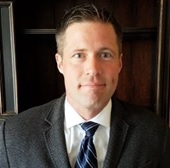Seeking Safety Training: Core Skills for Evidence-Based Practice
November 30th - December 1st, 2022
Where: Online at your desktop, or smart device
** Bring your team and take advantage of group rates
(NOTE: We added a new session to be facilitated by Dr. Trevor Manthey)
This training is presented based on the implementation guide developed by the architect of the method, Lisa Najavits*, PhD, ABPP, “Seeking Safety: An Implementation Guide, in Rubin and Springer, The Clinician’s Guide to Evidence-Based Practice". It will also train participants to utilize the facilitator manual developed by Lisa Najavits
Seeking Safety is a present-focused, evidence-based coping skills approach developed as an integrated treatment for co-morbid issues regarding trauma (PTSD) and substance use disorders (SUD). It does not require the client to dwell on the past, although it can be combined with trauma-processing methods. The primary goal of Seeking Safety is to promote recovery by assisting the individual in developing strategies to keep them safe from the effects of trauma, and the painful impact of substance use. As the title implies, “Seeking Safety” is the objective.
The Seeking Safety method seeks to counteract the impulsivity and chaotic nature of this co-morbidity with a process that emphasizes planning, pacing, and predictability. While it’s a structured approach, the treatment is also designed to be extremely flexible to adapt to clients’ needs, clinicians’ preferences, and a variety of treatment contexts.
Any practitioner can conduct the program, provided they have a desire to work with this population, a willingness to use a manual-based approach, and possess positive interpersonal skills.
Program Goals and Learning Outcomes
In this training, participants will learn;
- The central ideas around which the method is based, and core skills for applying them
- To clearly define “traumatic” experiences and the connection of trauma to substance abuse
- Skills for maintaining safety for the client and they themselves, the practitioner
- Skills for helping clients learn safe coping skills
- Skills for helping clients manage impulses and manage emotions
- To utilize the facilitator manual* developed by Lisa Najavits
* Facilitator Manual: “Seeking Safety: A Treatment Manual for PTSD and Substance Abuse” by Lisa M. Najavits
* If you plan on conducting Seeking Safety sessions with clients, the manual is required. Purchase the manual separately and have it available during the training to learn how it is used.
The manual comes in two (2) versions - a hardcopy version, and an electronic PDF version (There is also a Kindle version sold on Amazon, although we understood from users they are not able to print from the kindle version. You will need to print some sections and forms for your sessions).
Purchase the manual where books are sold online or bookstores. We offer the electronic PDF version for purchase during your registration checkout. If you purchase from us we will order and send you the proprietary link you will need to download the manual onto your computer or electronic device (tablet, etc).
For the hardcopy version, please purchase from other booksellers. You can consider getting them from the publisher, Guilford Press, Amazon, or other places like that. When ordering the hardcopy manual, please be mindful of shipping times to ensure you receive it in plenty of time to receive it by the training date.
Faculty
Trevor J. Manthey, Ph.D., MINT, CEBP

Trevor Manthey is engaged in researching and training interventions that help facilitate self-determination in rehabilitation settings. This interest in self-determination has led to authored publications on topics such as Shared-Decision Making, Self-Directed Care, Motivational Interviewing (MI), Supported Education, Supported Employment and Peer Support. Trevor is also a member of MINT (Motivational Interviewing Network of Trainers). His work history includes over 15 years of experience in the human, social and justice services field including both inpatient and outpatient settings.
Trevor has a BS in Psychology with a minor in business management, an MSW degree, and a Ph.D. from the University of Kansas. A variety of populations have received training from Trevor including: Community Mental Health Agencies, Assertive Community Treatment Teams, Integrated Dual Disorder Treatment Teams, Child Welfare, School Districts, Private Schools, Peer Support Centers, Vocational Rehabilitation, College Counseling Centers, Regional Support Networks, State Attorney General’s Offices, Corrections Teams, Juvenile Justice, and Parenting Support Groups. Trevor has trained both in the United States and abroad.
Trevor has helped state agencies in their efforts to implement motivational interviewing system wide in order to assist in statewide cultural shifts towards more strengths-based strategies. In order to ensure fidelity to the intervention, Trevor has provided individualized coaching and feedback to counselors, social workers, supervisors, administrators, front line and administrative staff. This is partially accomplished through a series of initial trainings followed up with coding audiotapes of actual interviews with clients and then providing constructive coaching through telephone calls and further training/coaching efforts.
Trevor was part of an implementation team awarded the Nation Council on Rehabilitation Education Presidents Award for his training in motivational interviewing for a trial of MI in Wisconsin DVR.
Event Details
| Event Date | 11/30/2022 |
| Event End Date | 12/01/2022 |
| Cut off date | 11/28/2022 |
| Individual Price | $295.00 |
| Speaker | Trevor J. Manthey, Ph.D., MSW, MINT, CEBP |
| Number Hours | 13 |
| Location | Online Event |
Group Rate
| Number of Registrants | Rate/Person ($) |
|---|---|
| 4 | 221.25 |